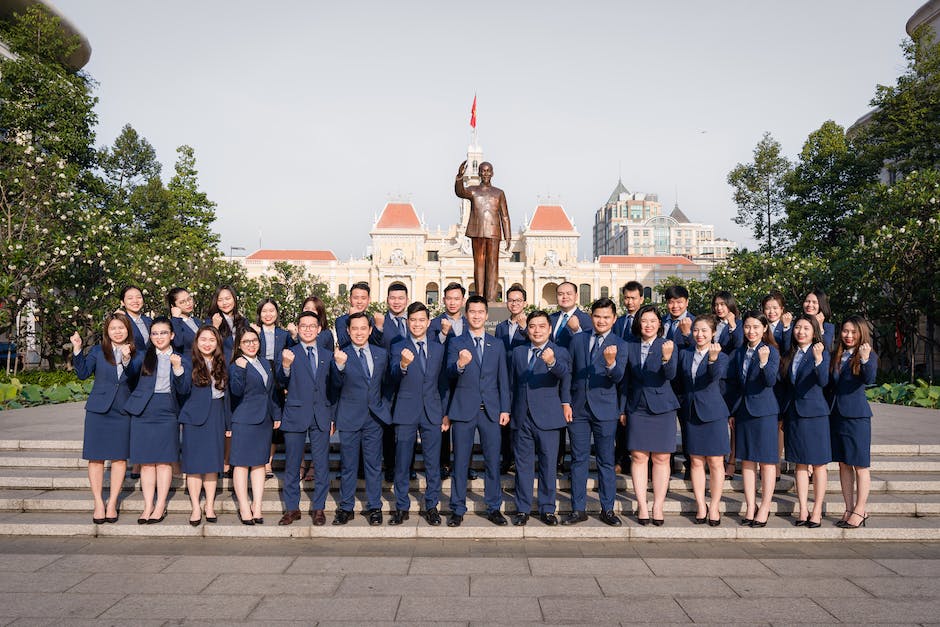Table of Contents
- Introduction
- The Importance of Succession Planning in Leadership Evolution at PepsiCo
- Strategies for Effective Succession Planning in Leadership at PepsiCo
- Case Study: Succession Planning and Leadership Evolution at PepsiCo
- Future Trends in Succession Planning for Leadership Evolution at PepsiCo
- Q&A
- Conclusion
“Empowering tomorrow’s leaders today: Leadership Evolution at PepsiCo”
Introduction
Leadership Evolution: Succession Planning at PepsiCo
Succession planning is a critical aspect of any organization’s long-term success, ensuring a smooth transition of leadership and the development of future leaders. PepsiCo, a global food and beverage company, recognizes the importance of effective succession planning to sustain its growth and maintain its competitive edge in the industry. With a strong focus on leadership evolution, PepsiCo has implemented robust strategies and programs to identify, nurture, and groom talented individuals for key leadership positions within the organization. This proactive approach to succession planning has allowed PepsiCo to cultivate a pipeline of capable leaders who can drive the company’s continued success in the ever-evolving business landscape.
The Importance of Succession Planning in Leadership Evolution at PepsiCo

The Importance of Succession Planning in Leadership Evolution at PepsiCo
Succession planning is a critical aspect of leadership evolution in any organization. It ensures that there is a smooth transition of leadership from one generation to the next, allowing for continuity and stability. PepsiCo, one of the world’s leading food and beverage companies, recognizes the significance of succession planning and has implemented robust strategies to ensure the continued success of the organization.
Succession planning at PepsiCo is not just about filling vacant positions; it is a comprehensive process that identifies and develops potential leaders within the organization. The company understands that leadership is not a one-size-fits-all concept and that different individuals possess unique skills and qualities that can contribute to the company’s growth. Therefore, PepsiCo focuses on identifying and nurturing talent from within, ensuring that the next generation of leaders is well-prepared to take on the challenges of the future.
One of the key elements of PepsiCo’s succession planning strategy is the identification of high-potential employees. The company invests in talent assessment programs that evaluate individuals based on their performance, potential, and leadership capabilities. This allows PepsiCo to identify individuals who have the potential to take on leadership roles in the future. By identifying these high-potential employees early on, PepsiCo can provide them with the necessary training and development opportunities to prepare them for future leadership positions.
Another crucial aspect of PepsiCo’s succession planning is the creation of a leadership pipeline. The company believes in developing leaders at all levels of the organization, from entry-level positions to senior management. This ensures that there is a continuous supply of capable leaders who can step into higher roles when the need arises. PepsiCo provides its employees with various development programs, such as mentoring, coaching, and leadership training, to equip them with the skills and knowledge required for leadership positions.
PepsiCo also recognizes the importance of diversity and inclusion in leadership succession planning. The company understands that diverse perspectives and experiences are essential for innovation and growth. Therefore, PepsiCo actively promotes diversity in its leadership pipeline, ensuring that individuals from different backgrounds and cultures have equal opportunities to advance within the organization. This not only enhances the company’s ability to adapt to a rapidly changing business environment but also fosters a culture of inclusivity and equality.
Succession planning at PepsiCo is not limited to the executive level; it extends to all levels of the organization. The company believes in empowering its employees and providing them with opportunities for growth and advancement. PepsiCo encourages its employees to take ownership of their careers and provides them with the necessary resources and support to succeed. This approach not only helps in retaining top talent but also creates a culture of continuous learning and development.
In conclusion, succession planning plays a crucial role in the leadership evolution at PepsiCo. The company’s comprehensive approach to succession planning ensures that there is a continuous supply of capable leaders who can drive the organization’s growth and success. By identifying high-potential employees, creating a leadership pipeline, promoting diversity and inclusion, and empowering its employees, PepsiCo sets itself up for long-term success. Succession planning is not just a process; it is a mindset that values talent, nurtures potential, and ensures a bright future for the organization.
Strategies for Effective Succession Planning in Leadership at PepsiCo
Succession planning is a critical aspect of any organization’s long-term success. It ensures that there is a smooth transition of leadership, allowing the company to continue thriving even when key individuals retire or move on to other opportunities. PepsiCo, one of the world’s leading food and beverage companies, understands the importance of effective succession planning and has implemented strategies to ensure a seamless leadership evolution.
One of the key strategies employed by PepsiCo is identifying and developing high-potential employees early on. The company recognizes that leadership potential can be found at all levels of the organization, and it actively seeks out individuals who demonstrate the necessary skills and qualities to succeed in leadership roles. By identifying these individuals early, PepsiCo can provide them with the necessary training and development opportunities to prepare them for future leadership positions.
Another important aspect of PepsiCo’s succession planning strategy is creating a culture of continuous learning and development. The company understands that leadership skills need to be constantly honed and refined, and it provides its employees with a wide range of learning opportunities. From formal training programs to mentoring and coaching initiatives, PepsiCo ensures that its employees have access to the resources they need to grow and develop as leaders.
PepsiCo also places a strong emphasis on diversity and inclusion in its succession planning efforts. The company recognizes that diverse perspectives and experiences are essential for driving innovation and growth. As such, it actively seeks out individuals from diverse backgrounds and ensures that they have equal opportunities for advancement. By promoting diversity and inclusion in its succession planning, PepsiCo is able to tap into a wider pool of talent and ensure that its leadership team reflects the diversity of its customer base.
In addition to these strategies, PepsiCo also places a strong emphasis on talent mobility. The company believes in providing its employees with opportunities to gain experience in different roles and functions. This not only helps to develop well-rounded leaders but also ensures that there is a pipeline of talent ready to step into leadership positions when the need arises. By encouraging talent mobility, PepsiCo is able to retain top performers and provide them with the necessary experiences to succeed in future leadership roles.
Furthermore, PepsiCo understands the importance of transparency and communication in its succession planning efforts. The company ensures that its employees are aware of the opportunities available to them and the skills and experiences required for advancement. It also provides regular feedback and performance evaluations to help individuals understand their strengths and areas for improvement. By fostering a culture of transparency and communication, PepsiCo ensures that its employees are engaged and motivated to develop their leadership skills.
In conclusion, PepsiCo’s success in leadership evolution can be attributed to its effective succession planning strategies. By identifying and developing high-potential employees, creating a culture of continuous learning and development, promoting diversity and inclusion, encouraging talent mobility, and fostering transparency and communication, PepsiCo ensures that it has a strong pipeline of leaders ready to take on future challenges. These strategies not only ensure the long-term success of the company but also create a positive and engaging work environment for its employees.
Case Study: Succession Planning and Leadership Evolution at PepsiCo
Leadership Evolution: Succession Planning at PepsiCo
Succession planning is a critical aspect of any organization’s long-term success. It ensures that there is a pipeline of talented individuals ready to step into key leadership roles when the need arises. One company that has excelled in this area is PepsiCo, a global food and beverage giant. Through its robust succession planning process, PepsiCo has been able to cultivate a strong leadership bench and ensure a smooth transition of power when necessary.
PepsiCo’s succession planning process begins with a thorough assessment of the company’s current leadership team. This assessment helps identify potential gaps in skills and experience and determines the areas where future leaders need to be developed. By understanding the strengths and weaknesses of its current leaders, PepsiCo can create a targeted development plan to groom the next generation of leaders.
One of the key components of PepsiCo’s succession planning process is the identification of high-potential employees. These individuals are identified based on their performance, potential, and alignment with the company’s values and culture. Once identified, these high-potential employees are given opportunities for growth and development, such as stretch assignments, mentoring, and leadership training programs.
PepsiCo also recognizes the importance of diversity and inclusion in its succession planning efforts. The company believes that a diverse leadership team brings different perspectives and ideas to the table, leading to better decision-making and innovation. As a result, PepsiCo actively seeks to identify and develop leaders from underrepresented groups, including women and people of color.
Another critical aspect of PepsiCo’s succession planning process is the involvement of senior leaders in the development of future leaders. Senior leaders play a crucial role in mentoring and coaching high-potential employees, providing them with guidance and support as they navigate their career paths. This mentorship helps develop the necessary skills and competencies required for leadership roles within the organization.
PepsiCo also recognizes the importance of external talent in its succession planning efforts. The company actively seeks to attract top talent from outside the organization, bringing in fresh perspectives and ideas. This external talent is integrated into the succession planning process, ensuring a diverse and well-rounded leadership team.
To ensure the effectiveness of its succession planning efforts, PepsiCo regularly reviews and updates its plans. The company conducts talent reviews to assess the progress and development of high-potential employees, identifying any gaps or areas for improvement. This ongoing evaluation allows PepsiCo to make necessary adjustments to its succession plans and ensure that it remains aligned with the company’s strategic goals.
The success of PepsiCo’s succession planning efforts can be seen in the smooth transitions of power that have taken place within the organization. When former CEO Indra Nooyi stepped down in 2018, her successor, Ramon Laguarta, seamlessly took over the reins. This smooth transition was a testament to the effectiveness of PepsiCo’s succession planning process and the strength of its leadership bench.
In conclusion, PepsiCo’s succession planning process is a shining example of how organizations can cultivate a strong leadership bench and ensure a smooth transition of power. By assessing current leaders, identifying high-potential employees, fostering diversity and inclusion, involving senior leaders, attracting external talent, and regularly reviewing and updating plans, PepsiCo has been able to evolve its leadership and ensure its long-term success. Other organizations can learn from PepsiCo’s approach and implement similar strategies to develop their own pipeline of future leaders.
Future Trends in Succession Planning for Leadership Evolution at PepsiCo
Future Trends in Succession Planning for Leadership Evolution at PepsiCo
Succession planning is a critical aspect of any organization’s long-term success. It ensures that there is a pipeline of talented individuals ready to step into key leadership roles when the need arises. PepsiCo, one of the world’s leading food and beverage companies, recognizes the importance of effective succession planning and has implemented various strategies to ensure a smooth leadership transition.
One future trend in succession planning at PepsiCo is the emphasis on diversity and inclusion. The company understands that a diverse leadership team brings different perspectives and experiences to the table, which can lead to better decision-making and innovation. As a result, PepsiCo is actively working to identify and develop a diverse pool of talent for future leadership positions. This includes providing equal opportunities for women and underrepresented groups to advance within the organization.
Another trend in succession planning at PepsiCo is the focus on developing leaders with a global mindset. In today’s interconnected world, companies need leaders who can navigate the complexities of operating in different markets and cultures. PepsiCo recognizes this need and is investing in leadership development programs that expose high-potential employees to international experiences. These programs help develop a global mindset and provide individuals with the skills and knowledge needed to lead effectively in a global context.
Technology is also playing a significant role in shaping the future of succession planning at PepsiCo. The company is leveraging data analytics and artificial intelligence to identify high-potential employees and match them with suitable leadership roles. By analyzing performance data, employee feedback, and other relevant metrics, PepsiCo can identify individuals who have the potential to excel in leadership positions. This data-driven approach ensures that succession planning is based on objective criteria and reduces the risk of bias or favoritism.
Furthermore, PepsiCo is adopting a more proactive approach to succession planning by identifying potential successors for critical leadership roles well in advance. This allows the company to provide targeted development opportunities to these individuals, ensuring they are ready to step into their new roles when the time comes. By taking a proactive approach, PepsiCo minimizes the disruption that can occur during leadership transitions and ensures a smooth continuity of operations.
In addition to these trends, PepsiCo is also focusing on building a culture of continuous learning and development. The company recognizes that leadership skills need to evolve to keep pace with the changing business landscape. As a result, PepsiCo is investing in leadership development programs that provide ongoing training and support to current and future leaders. This commitment to continuous learning ensures that PepsiCo’s leaders are equipped with the skills and knowledge needed to drive the company’s success in the future.
In conclusion, PepsiCo is at the forefront of future trends in succession planning for leadership evolution. The company recognizes the importance of diversity, global mindset, technology, and proactive planning in ensuring a smooth transition of leadership. By investing in these areas, PepsiCo is positioning itself for long-term success and ensuring that it has a strong pipeline of talented leaders ready to take on future challenges. As the business landscape continues to evolve, PepsiCo’s commitment to succession planning will remain a key driver of its continued growth and success.
Q&A
1. What is leadership evolution at PepsiCo?
Leadership evolution at PepsiCo refers to the process of identifying and developing future leaders within the company through succession planning.
2. Why is succession planning important for PepsiCo?
Succession planning is important for PepsiCo as it ensures a smooth transition of leadership positions and minimizes disruptions in the organization. It helps identify and groom potential leaders, ensuring a strong talent pipeline for the company’s future success.
3. How does PepsiCo implement succession planning?
PepsiCo implements succession planning by identifying high-potential employees, providing them with development opportunities, and creating a clear career path for advancement. The company also focuses on diversity and inclusion in its succession planning efforts.
4. What are the benefits of leadership evolution and succession planning at PepsiCo?
The benefits of leadership evolution and succession planning at PepsiCo include a strong leadership bench, reduced risk of leadership gaps, increased employee engagement and retention, and the ability to adapt to changing business needs effectively.
Conclusion
In conclusion, PepsiCo has implemented a comprehensive leadership evolution and succession planning strategy to ensure the continued success of the company. By identifying and developing high-potential leaders, creating a diverse talent pool, and providing ongoing training and development opportunities, PepsiCo is well-positioned to navigate the challenges of leadership succession and drive future growth.





